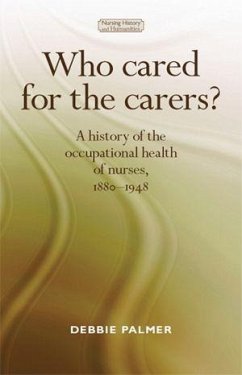This book compares the histories of psychiatric and voluntary hospital nurses' health, from the rise of the professional nurse in 1880 to the advent of the National Health Service in 1948. In the process it reveals the ways national ideas about the organisation of nursing impacted on the lives of ordinary nurses. It explains why the management of nurses' health changed over time and between places, and sets these changes within a wider context of social, political and economic history. Today, high rates of sickness absence in the nursing profession attract increasing criticism. Nurses took more days off sick in 2011 than private sector employees and most other groups of public sector workers. This book argues that the roots of today's problems are embedded in the ways nurses were managed in the late nineteenth and early twentieth centuries. It documents the nature of nurses' health problems, the ways in which these problems were perceived and how government, nurse organisations, trade unions and hospitals responded. It offers insights not only into the history of women's work but also the history of disease and the ways changing scientific knowledge shaped the management of nurses' health. Its inclusion of male nurses and asylum nursing alongside female voluntary hospital nurses sheds new light on the key themes of interest to historians today, particularly social class, gender and the issue of professionalisation. It will interest those studying nursing, the history of medicine and the history of occupational health, as well as gender studies.
Bitte wählen Sie Ihr Anliegen aus.
Rechnungen
Retourenschein anfordern
Bestellstatus
Storno








